This late 1970s BBC “space opera” is a classic of British television, one of very few science-fiction shows to be broadly popular in the country (the others being Doctor Who and Red Dwarf). It sees a band of freedom fighters taking on the evil interstellar “Federation”. When it does well, it is great television - exciting, engaging and charming, cold when it needs to be, warm and reassuring when it needs to be, and the storytelling is always sympathetic to the viewer. And from our point-of-view today, it is also a wonderfully nostalgic production.
It was aimed at “older children” and adults, so aged 10 and up. As such it is civilised - there is no swearing, sex or excessive violence - but still quite mature. It’s certainly more mature than an equivalent programme would be nowadays. Themes of freedom, authority, truth, justice and duty abound. For a long time it was my very favourite TV show; nowadays it is in joint first place with Manhunt (1969).
The production mode was the standard at the time - video in studio, film on location - with only rare exceptions. The acting style was also the standard at the time: Received Pronunciation throughout, except for characters who are supposed to be uneducated.
One interesting thing is that you can see fashions evolving over the course of Blake’s 7, from late ‘70s glam to early ‘80s New Wave.
It was made in four seasons, which by bizarre convention have come to be lettered, not numbered. The general consensus (which I agree with) is that the first two are excellent, and the other two are each half great and half dreadful. I will guide you.
Season A
While Season B is objectively the best one, I personally prefer Season A. It is darker and simpler, relying greatly on dialogue and tone. There is also, alongside the darkness, a sort of innocence in Season A, perhaps best conveyed in Dudley Simpson’s score which here has more room to breathe than in later, busier episodes.
One of the best opening episodes I’ve ever seen, this establishes the world, the main character, the tone and the thrust of Blake’s 7 in expert fashion. It is surprisingly “dark” given the intended audience (as young as 10) and the show never goes quite as dark again.
Space Fall
A surprising amount of stuff happens in this - it could easily have been two separate episodes. The second plot, where they board the Liberator, is exciting, but the first plot is perhaps more intriguing. It also features a killer conversation between our three principals, regarding power, ambition, morality and duty. In addition, I love the sets of the prison ship. As with many settings in Blake’s 7, I wish we had spent a bit more time in this one.
Leslie Schofield gives a good turn as Commander Riker, and so does Glyn Owen as the ship’s captain - world-weary, cynical, but decent. This episode is also concerned with introducing the character of Avon. He is by turns intriguing, detestable, sardonic, practical, vulnerable and heroic - and that’s just in this episode.
Cygnus Alpha
A very atmospheric episode set on a backward prison planet. We get good turns from Pamela Salem and Brian Blessed as fanatical religious leaders. Peter Childs is also memorable as Arco, a disaffected prisoner. The episode’s “shtick” about religion (it’s a lie created to control people) is hackneyed by now but I can overlook that. It’s a well-made, tense episode, and it’s exciting to watch Blake save as many of his former friends as possible for his new crew.
The surface of Cygnus Alpha was realised with a mix of (adorable) model landscapes, actual filming in a quarry, and, for the only time in the series, studio filming using rear projection.
Rear projection had to be done at Ealing Studios which only had film cameras, so the footage matches the actual exterior footage in the show, “selling” the effect. It is so much better than bluescreening, I’m amazed they settled for that after this.
The Web
This isn’t a great episode by any means, but the atmosphere is something special. The location filming (in a forest at dusk) achieves a lot of this, but we can’t overlook Dudley Simpson’s score, which is intensely eerie, with a subtle hint of grottiness. Also, I love the Lost complex; it would have been cheap to do, but looks great on-screen.
Seek-Locate-Destroy
This isn’t one of my favourite episodes, but it is good, and necessary to watch because it introduces the two regular villains: Servalan and Travis.
Duel
This episode is prominent for several reasons, being unusually fantastical, and extremely atmospheric and ominous - a lot of this being achieved with inventive sound design and visual effects, but also a haunting model landscape. Isla Blair’s performance as Sinofar also brings a lot to the table.
The relationship between Sinofar and Giroc is pleasingly mysterious, like everything else about this planet and its history. Also, Travis’s night-time chat with his bionic slave is memorable. The whole story is framed by the theme of nuclear holocaust which was deeply pertinent in 1978, and perhaps still today.
Project Avalon
This is a good “thriller” episode, but again, also very atmospheric. The snowbound planet, with its caves and secret tunnels, is nicely realised. (Be aware that, towards the end, you will see a truly ridiculous special effect. Try to forgive these things.)
Orac
I love this episode because it is so bleak yet so touching. It takes place on a desolate planet, abandoned but for one lone, dying genius. He lives in an underground complex that, using his talents, he has fortified over the decades. The story is a “get there before the baddies do” affair, and gripping stuff. But mostly I love the setting - and again, it is well-realised.
Season B
This season is uniformly great, with the single exception of one dud episode, Voice from the Past. Avoid that and you can’t go wrong, but here are my favourites:
Weapon
An interesting idea for the titular device and for the character who invented it, Coser. He is played with jealous malevolence by John Bennett. There is also a great performance from Scott Fredericks as the smug genius who is manipulating him.
Trial
A good example of Robert Holmes using his favoured technique of having two characters who are basically superfluous to the plot but chatter together and thus inform the audience about what’s going on - a “Greek chorus”.
Pressure Point
As the mid-season tentpole, this episode should be a lot better than it is, but it is still a good one. The discovery at the climax is very well-done, with great acting from Gareth Thomas and Brian Croucher.
Gambit
Robert Holmes delivers a highly intricate plot, carried with wit and style resulting in an exceptionally engaging episode. It’s really a thrill to watch. I also love that there is a concurrent B-plot which is much simpler, providing comic relief and making the crew’s visit to Freedom City worth it even if the A-plot doesn’t work out. Note: this episode’s production is the absolute height of “1970s kitsch”, so brace yourself.
Star One
Masterful plotting by Chris Boucher. Some very interesting concepts. I love the idea of the sensors being pointed towards a vast space that is, in theory, empty. Jacqueline Pearce is on top form as Servalan, who is on top form as empress of the galaxy. This episode is a thrilling ride from start to finish, and a contender for the best of the entire run.
Season C
Rumours of Death
Chris Boucher again shows his talent for plotting. In a rare (perhaps unique) case, the plot has already begun by the time we join the characters. It takes some time, therefore, to work out what is going on. Then there are one or two pivot points later when we have to work it out again. It’s a love story, but more a loss story - tragic and haunting.
Death-Watch
Some nicely-done special effects (the train interior), some cool sets, and Steven Pacey does a good job of playing two different characters.
Terminal
This is a very ominous episode. I don’t find the plot as incredible as many people seem to, but I do enjoy the atmosphere and acting. Pearce is terrific as Servalan here - it’s possibly her best turn in the role.
Season D
Rescue
It riffs a bit too much on Dorian Gray (did the character really have to be actually named “Dorian”?!) but still, a good episode and an inventive way to introduce the Scorpio and Xenon Base. I enjoy Geoffrey Burridge’s performance in the guest role. With this episode, you really feel that the 1980s have arrived.
Sand
This is an oddly cerebral episode, making use of the unique pairing together of Tarrant and Servalan. In essence the story is about love. There are some lovely effects - a model landscape that, though less convincing than the programme has managed before, is cute.
When it comes to shots of actors on the planet surface, I really wish it had been done as in Cygnus Alpha. As it is, the bluescreening brings an intrusion of nasty kitsch into what is otherwise a heartfelt and thoughtful episode.
Gold
This is basically a heist story. The plot is sufficiently complex to keep you interested, and by the time the steal is finally happening, I’m on the edge of my seat. There is also a streak of humour throughout much of the events, especially in the Tarrant/Dayna scenes. Life onboard the spaceliner is well conveyed.
Orbit
Showing his versatility, Robert Holmes penned this script which has far fewer characters than Gambit but is no less rich in dialogue and wit. The plot is also much simpler, but executed brilliantly. The final third sees Avon and Vila faced with the challenge of making a shuttle achieve escape velocity - or else they will perish. A great performance from Paul Darrow as Avon. This episode also has two characters who are, clearly, a homosexual couple, one of whom seems to have pederastic leanings. At any rate he is certainly the negative stereotype of a predatory gay man, the kind of thing you would never see in a TV drama today.
Blake
Like Star One, masterful plotting and a contender for the best episode of all. Unlike Star One, the canvas is small and the plotting sparse - but, afterwards, you will realise that “as much happened as needed to happen”. As well as Boucher’s script, there is great directing from Mary Ridge. The lighting and sound design must also be mentioned.
The ending of this episode lives in TV history. I will only say that I marvel at how everything preceding it leads, inevitably, to it. Chris Boucher really gave the show a belter of a finale. Its message is that “unless good men can trust other good men, they will fail” - which is as resonant and appropriate a notion as this show could possibly end on.
The episodes not scored by Dudley Simpson
The female-written episodes
Of the 52, only two were by women, and in both cases it was Tanith Lee. It’s interesting that they definitely seem different from all the other episodes - more gentle, more sensual.
Sarcophagus
Sand
The “fantasy” episodes (as opposed to sci-fi)
The episodes that show Earth
The Way Back
Pressure Point
Rumours of Death
The Liberator on film
For unknown reasons, shooting of Liberator sets was occasionally done on film, which makes for interesting comparisons:
Breakdown (medical bay)
Redemption (engineering room)
Aftermath (escape pod bay)
Curiosities
Volcano
This is a bad episode, but worth watching just to see the most hilarious android ever shown on British TV. (I don’t know what they were thinking.)
Episodes to avoid
Bounty (the lone “dud” in Season A)
The first seven episodes of Season C
All of Season D between Power and Assassin, inclusive
Music
Dudley Simpson’s wonderful music is a key part of Blake’s 7, establishing the atmosphere and pace throughout. He also composed the iconic theme tune. Tragically his master-tapes were lost, so we can’t hear the scores except in the episodes. However, someone has edited together bits from the episodes without intrusive dialogue etc. so that at least some parts of the scores can be enjoyed in isolation. The playlist is here. I would also recommend Simpson’s 7” release of the theme tune (the only way to hear it in stereo), which has a charming B-side, Federation March.
What I would have liked
More time spent in various settings - eg. the prison ship, Cygnus Alpha - so that the series took longer to set up the situation of Blake on the Liberator with his crew. That could even have taken up the whole of the first season. After securing the ship, Blake could have travelled around the galaxy picking up various old acquaintances that he trusted. After all, that’s what most people in his situation would do. (But I guess the show’s title rather limits the possibilities here!)
Relatedly, I would like more episodes that highlight the safety and sanctity offered by the Liberator - more episodes where they have to get precious resources or people on-board, and in time, and away… I think this isn’t exploited enough as a story element.
Similarly, we should see them stocking up on crucial supplies now and then. In the episode Deliverance, we learn that there are no decontaminant drugs on-board. Obviously, that should be a priority that we see being attended to in a later episode. I love the idea of the Liberator being made into a “moving homebase”, with everything that they could possibly need.
Ven Glynd should have been played by the same actor in his two appearances. The actors are so different that I find it impossible to suspend my disbelief. (Oddly enough, I also find it impossible to believe the character’s change of heart.)
Gareth Thomas should never have left. I love Avon and he’s a good main character, but the truth is, the show never recovers from losing Blake.
Season 3 should have been all about the war with the Andromedans.
The destruction of Earth, off-screen… that’s a bit much!
The loss of the Liberator… it just didn’t need to happen.
The whole “Sleer” arc with Servalan is ridiculous.
Servalan should have appeared in the final episode.
See my other TV guides here.


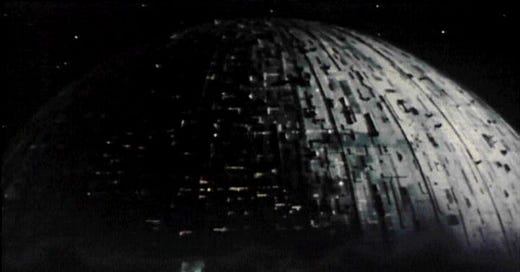



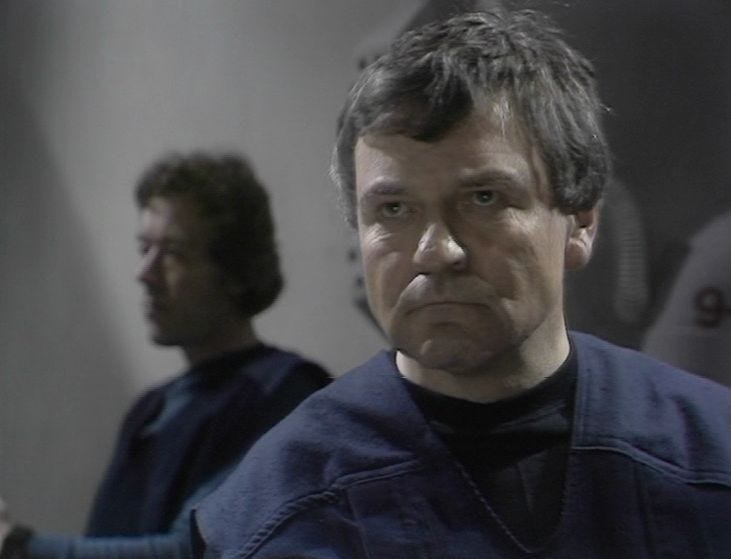
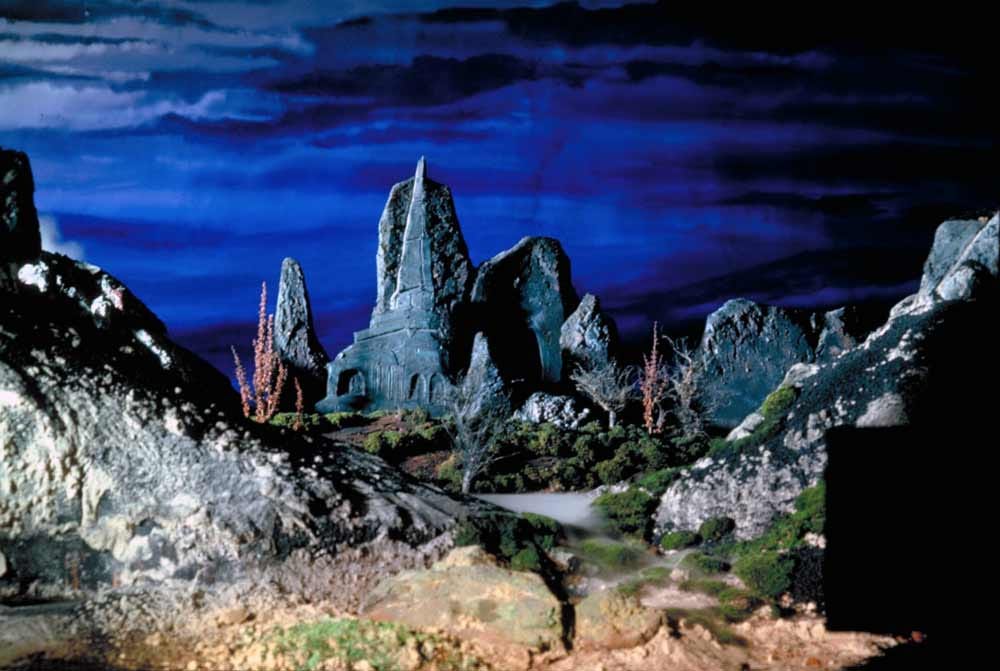
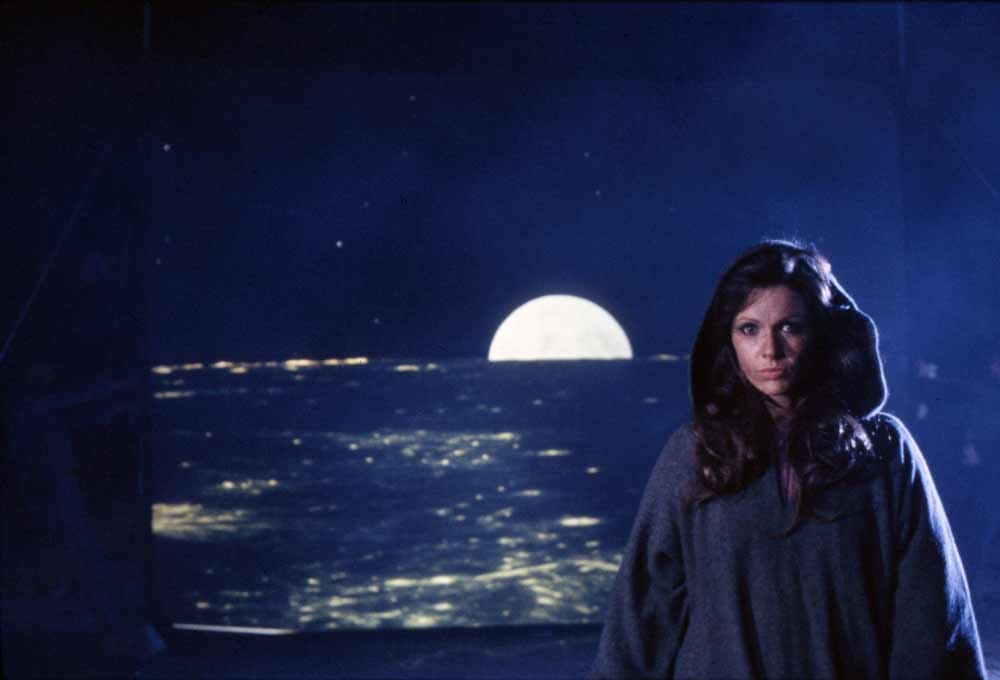
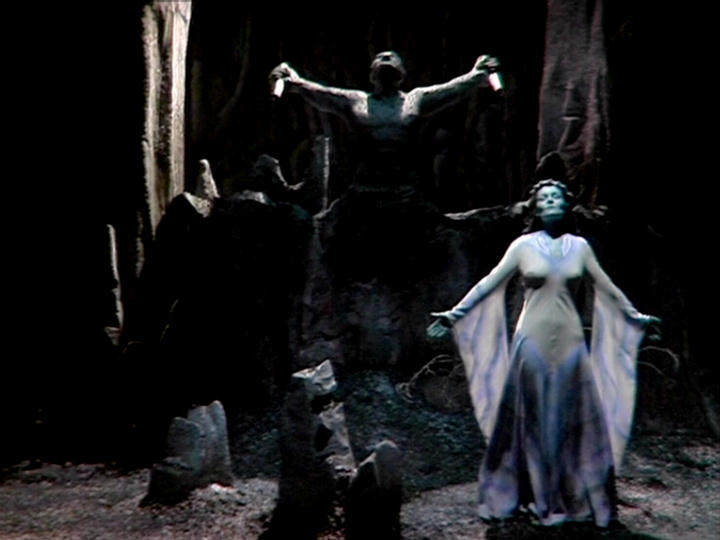
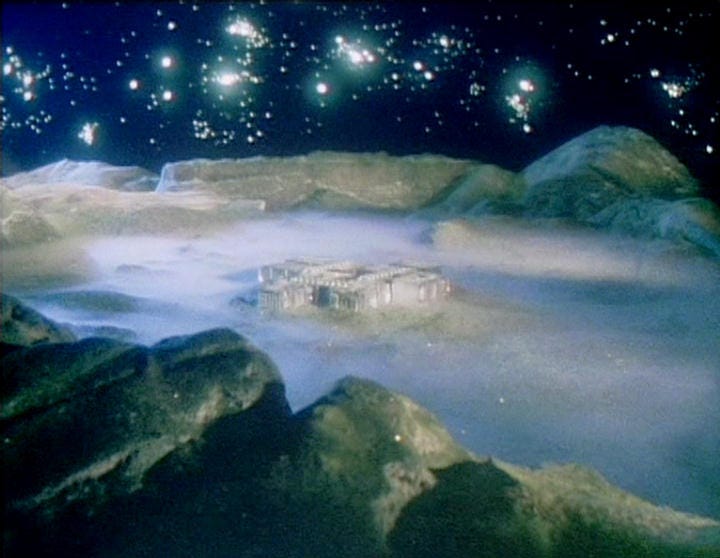
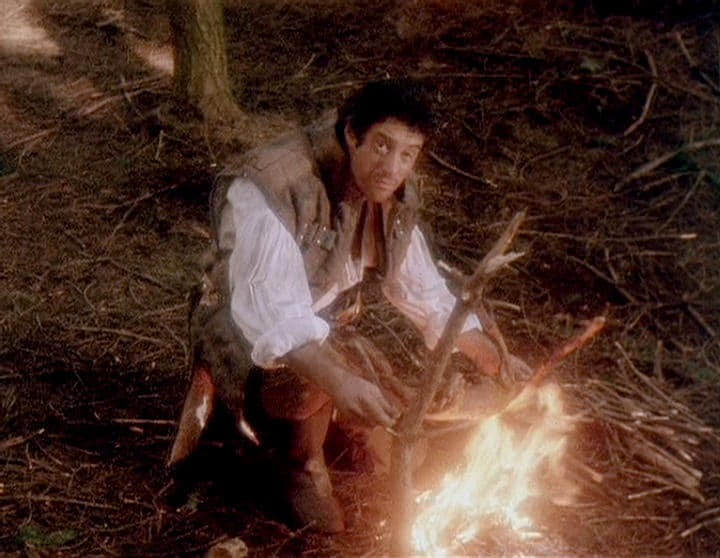
I'm very glad you're doing this project of TV guides. I was born in America in 1962, and we had "Blake's 7" and "Survivors" shown here, along with a selection of several other good British programs of the 60's and 70's. "Survivors" became my all-time favorite series, and your review of it brought back many good memories, which I mentioned towards the end of my lament for England at https://williammarkley.substack.com/p/england-is-being-destroyed-from-within
As you've described previously, TV of this period was superior in some ways to later TV--not always, but at least in the better and average-quality series. This is despite the lower budgets of the time. Character and story were often presented in superior ways, and, much of the time, without the awful political messages that are so prevalent now. If our countries do completely collapse, I hope that older programs like these can somehow be saved, along with good books, so that people in the future can appreciate them. It's one reason that I tend to keep books, movies, and TV series in "hard copies." I used to work in libraries, and I've seen how we can no longer rely on them to preserve the good stuff.
Looking forward to your next TV review!
They launched this as the BBC's contribution to the post Star Wars sci-fi wave - which is just slightly cringe as the comparisons are basically non-existent - not just the ludicrous discrepancy in production values but also the fact they went the polar opposite from fairy-tale heroics to more adult-themed gritty dystopian sci-fi. However it does rather more closely resemble the earlier, much lower budget George Lucas sci-fi film THX 1138 - which its quite possible the writers knew of.